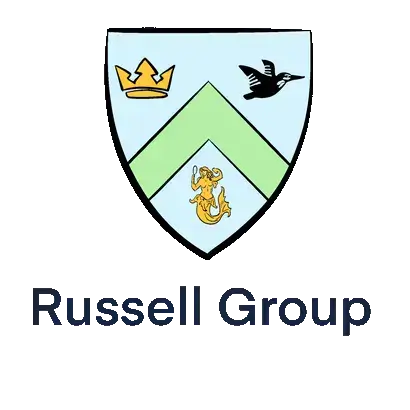St Paul’s School tutors
Nick - Check availability
7 Plus, 8 Plus, 11 Plus, 13 Plus, English, Maths & Music
Nick is an experienced and empathetic preparatory school teacher with over eight years of experience tutoring children for entrance exams, including 7+, 11+,...
Primary education (2015)
School entrance experience




St Paul’s School entrance guide
St Paul’s School has maintained a reputation for academic excellence amongst strong competition from other London schools. This guide is focused on the Senior school (for entrants aged 13-18), for younger years, please see our guide for St. Paul’s Juniors.
Established the same year Henry VIII married Catherine of Aragon (1509), St. Paul’s is one of the country’s oldest, and most regarded independent schools for boys. It is transparent and open regarding it’s focus on recruiting the brightest and most able boys and this translates to very competitive examinations, with a strong focus on academic excellence and “beyond the classroom” intellectual curiosity.
Below you will find a guide to examinations, scholarships and our tutors with specific experience of supporting entrants to St. Paul’s.
Open Days and Events at St Paul's School
Open days are held throughout the year but do get booked up very quickly. If you are considering St Paul’s School, it is best to book an open day as soon as possible, and be aware you may need to be flexible with the date on which you can attend. There is a specific 16+ (Sixth Form) Open Afternoon in the Autumn Term. If you have already registered, you will be invited on an individual tour two years before your son’s proposed start date. A virtual tour is also available for all, accessible on the website.
13 Plus Entry to St. Paul's School
The main entry point to the senior school at St. Paul's is Year 9. Approximately 176 boys enter the school at this stage with around 50% being drawn from St. Paul's Juniors.
For the remaining boys, coming from other schools, the application process will need to begin around 5 years before they enter the school, when in year 5. The will need to register their interest with the school at this point.
Stage 1 - ISEB pre-tests at St. Paul's
Like many selective schools, applicants will be required to sit the ISEB test in year 6. These computerised assessments test the students ability English, Mathematics and Reasoning. You can find out more about these tests here: "What is the ISEB pre-test" and "How to prepare for the ISEB pre-test".
If your son is applying to multiple independent schools, its important to note he will be sitting just the one ISEB test and the scores will be sent to each school. Boys who attend independent prep schools, or state schools with high numbers of independent school progressions, will be able to sit the ISEB at their own school. Those boys who do not have this option will have the opportunity to sit the test at St. Paul's itself. This also provides a great opportunity to see the school outside of a normal 'Open Day'.
As might be expected from a very academically focused school, boys will need to achieve very strong passes in each subject to progress to stage 2. They will also need a strong Headteacher's report which St. Paul's will request directly.
Stage 2 - 13+ formal entrance assessments at St Paul's School
Successful applicants from the ISEB pre-test will be invited to the second stage where they will be required to sit examinations at the school. There are papers in both English and Maths; the English paper is a discursive essay. These examinations are designed to test the academic calibre of applicants in greater depth and it is therefore important boys feel confident about both subjects when sitting the exams. Boys will also receive an invitation to attend an interview. You can see more about the interview process below.
Once stage 2 has been completed, boys will be informed by the school of the outcome. The school is relatively quick about informing whether a place has been offered and is usually within three weeks of the interview taking place. There is a waiting list for boys who do not receive unconditional offers. Applicants who are unsuccessful will be notified and a place will not be offered. For those who do pass the assessment there is a further two-stage process, which can seem a little bit complicated.
St. Paul's has a preferred curriculum which is also followed by many prep schools. If a boy attends one of these schools, and passes the above stages, his entrance to St. Paul's in Year 9 is only dependent upon a good reference from his Headteacher in Year 8. It is very unlikely an offer is pulled at this stage, but it's important hard work is still undertaken, given the academic demands of the school. It's important to note this is not an unconditional offer.
The school emphasises that it wants boys to arrive in year 9, ready to hit the ground running. As such, for boys who attend prep schools that follow a non-St Paul's curriculum (or state schools for years 7 and 8) the school can request boys achieve a certain mark rate in the Common Entrance examinations. This is not always required however. Boys offered a place at this stage are added to the Main List. To accept a place a deposit will be required.
For other boys, who are not immediately offered a place, or informed a place has been withdrawn, may be offered a place on the Reserve List. The school is aware that a number of boys offered places on the Main List may decide to attend other schools. Therefore, as places become available, the school will review the Reserve List and contact families accordingly.
The 13+ Interview at St. Paul's School
As might be expected, all applicants who pass stage 1 will be invited to an interview at the school. Unlike some other independent school interviews, the focus at St. Paul's is on the academic potential of the interviewee. This underscores the focus on academic excellence during the selection process.
The format of the interview (all of which run through the Spring and Summer terms) consists of an applicant meeting with two members of staff. The meeting usually lasts under 30 minutes and the teaching staff will always try to put the child at ease. That said, the questions can be challenging and it's important boys feel well prepared before they go in. Equally, it's important that boys are not "trained" as the interviewers are looking for genuine academic thoughtfulness and curiosity. An awareness of current affairs is also advised.Once the interview has been completed, stage 2 of the assessment is complete. Offers will then be made.
While it is important that boys are not regurgitating memorised answers to questions (it can come across as stilted) practice can really make a difference. There are many ways to do this and you may find the following guides helpful:
Scholarships and Bursaries at St. Paul's School
St. Paul's, like many schools, use scholarships as way of celebrating and signalling which students excel in certain fields. There is a small fee remission. Academic Scholarships are available for 13+ entry to St Paul’s School. Any boy in receipt of a Main List offer is able to sit additional Scholarship assessments, set later in the school year (usually in May). There are usually around 30 places available. The examinations are traditional and classical in nature, with boys sitting examinations in English, Mathematics, Science, Theology/Philosophy, Geography, Latin and French. Those who have studied it (and feel competent in it) can sit an additional paper in Greek. If your child attends St. Paul's Juniors, they will be assessed on the quality of their work at school and will not be required to sit a separate examination.
Music Scholarships are available for 13+ entry to St Paul’s School. Applicants are expected to have a minimum level of Grade 6. During assessment, boys will be expected to be able to site read, answer questions from the music assessor, pass listening assessments and of course, perform. Boys also need to sit a short examination paper which will test their composition skills. A 13+ music scholarship at St Paul’s School provides free musical tuition for up to two instruments.
Bursaries at St. Paul's School are available at 13+. Applications for bursary support are made during the registration process. The school will then assess the claimants and make a decision based on the living situation of the student and household income. Bursaries can range from a 100% fee reduction down percentage points, to a more modest reduction.
For more information, it is recommended you contact the school directly as arrangements are liable to change.




